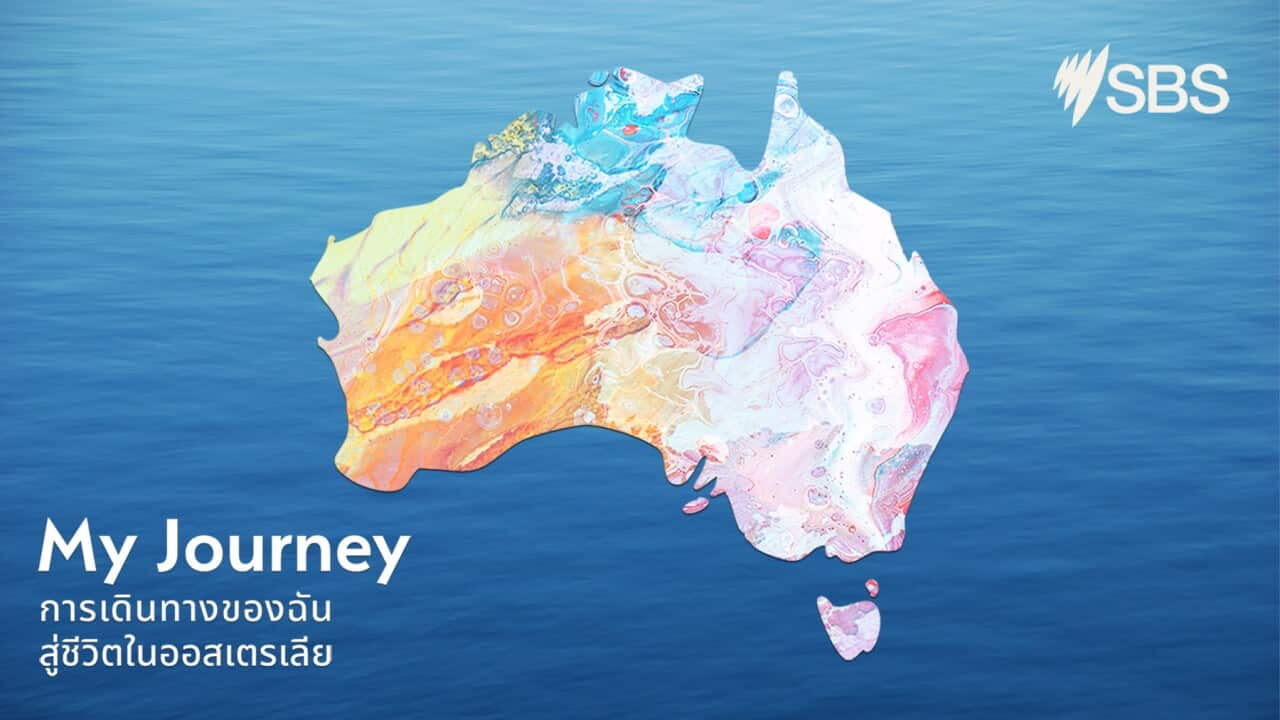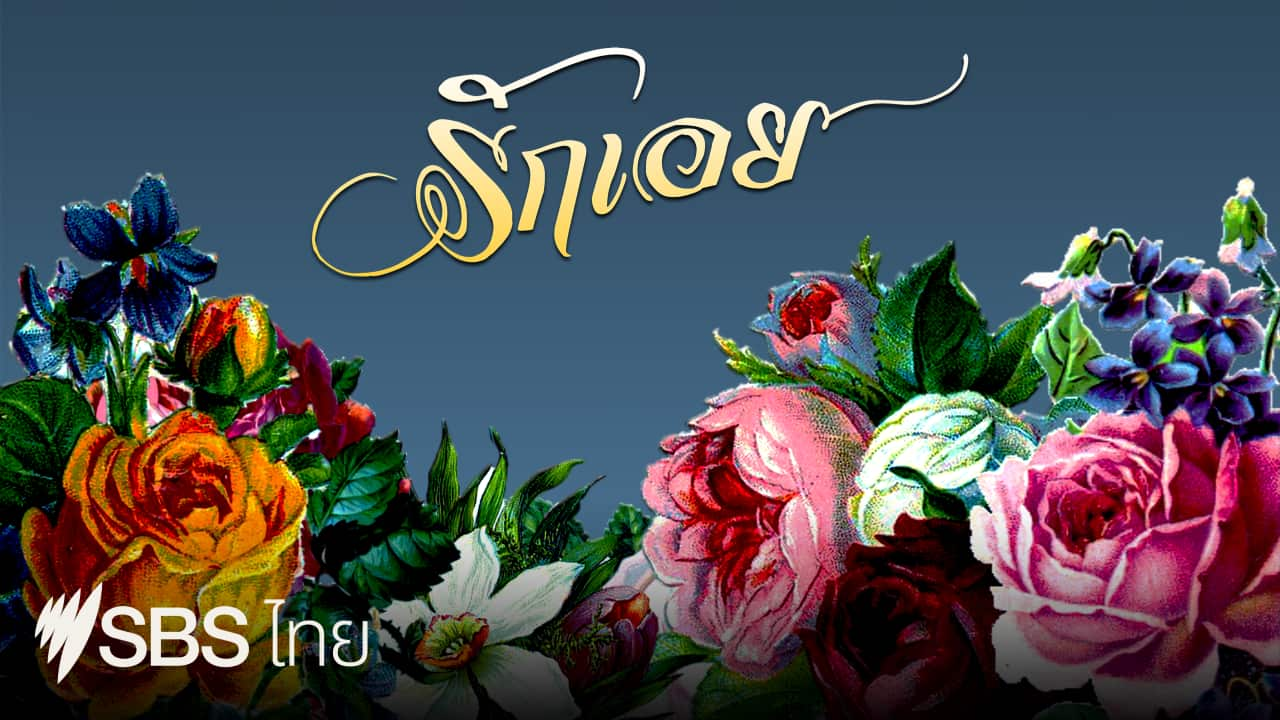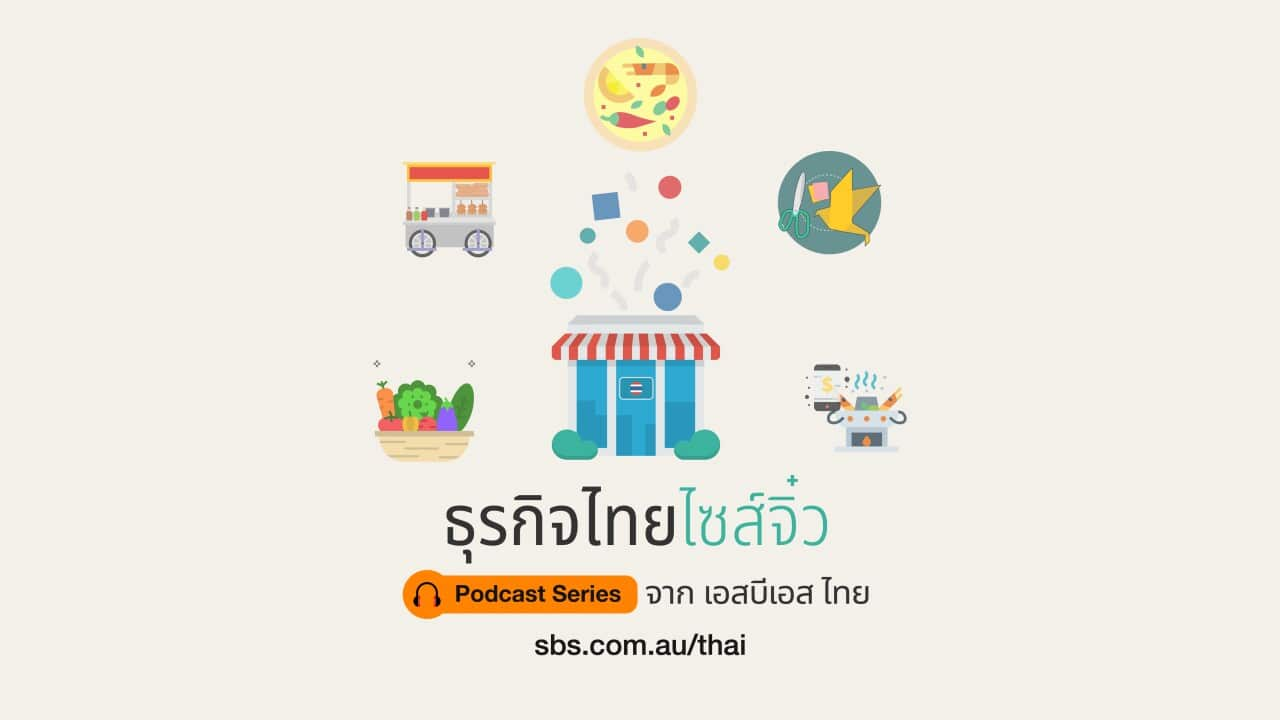จะช่วยให้คุณพูด เข้าใจ และเชื่อมต่อกับผู้คนในออสเตรเลีย -
บทเรียนในตอนนี้เหมาะกับผู้เรียนในระดับกลางสูงไปจนถึงระดับสูง หลังจากฟังจบแล้ว คุณสามารถทำควิซทดสอบความรู้ได้ด้านล่างของบทความ
คำอธิบายสำหรับบทเรียนนี้
จุดประสงค์ในการเรียนรู้
เรียนรู้วิธีการพูดเพื่อแสดงความชอบหรือไม่ชอบ
วิธีอื่น ๆ ในการพูดเมื่อคุณชอบบางสิ่ง
- I adore it!
- I’m crazy about it.
เปรียบเทียบความชอบสิ่งหนึ่งกับอีกสิ่งหนึ่ง
- I prefer lamingtons to pavlova.
- I enjoy all desserts, but I like pavlova best.
วิธีอื่น ๆ ในการพูดเมื่อคุณไม่ชอบบางสิ่ง
- I’m not mad about something.
- I’m not very fond of something.
- I detest something.
- I can’t stand something.
สำนวนต่าง ๆ ในเรื่องนี้:
- Your cup of tea – เป็นสำนวนที่หมายความว่าผู้พูดชื่นชอบสิ่งนั้น เช่น Hiking is my cup of tea.
- Float your boat – หมายถึง สิ่งนั้นดูไม่น่าสนใจ ไม่น่าตื่นเต้น ไม่น่าดึงดูด หรือไม่น่าสนใจ เช่น This music doesn't float my boat.
คำศัพท์ต่าง ๆ
- Lamingtons (ลามิงตัน) – สปันจ์เค้กเคลือบช็อกโกแลตและโรยด้วยมะพร้าวขูด
- Pavlova (พาฟโลวา) – ขนมหวานเมอแรงที่โรยหน้าด้วนวิปครีมและผลไม้สด
- Sponge cake (สปันจ์เค้ก) – เค้กเนื้อเบาที่ทำจากการตีไข่กับน้ำตาล แป้ง และเนย
- Vegemite (เวจิไมท์) – ยีสต์สกัดสีน้ำตาลเข้มที่มักใช้ทากับขนมปังปิ้ง
ข้อมูลทางวัฒนธรรมของออสเตรเลีย
ลามิงตัน และพาฟโลวา คือขนมหวานเลื่องชื่อของออสเตรเลีย
ลามิงตัน ถือเป็น ‘เค้กประจำชาติของออสเตรเลีย’ โดยตั้งชื่อตามอดีตผู้ว่าการรัฐควีนส์แลนด์ ลอร์ด ลามิงตัน (Lord Lamington)
พาฟโลวา (Pavlova) เป็นขนมคลาสสิกออสเตรเลียอีกอย่างหนึ่ง ตั้งชื่อตามนักเต้นบัลเลต์ชาวรัสเซีย แอนนา พาฟโลวา ซึ่งเดินทางมาทัวร์การแข่งขันในออสเตรเลียและนิวซีแลนด์ในช่วงคริสต์ทศวรรษที่ 1920 โดยเชื้อชาติของผู้ที่ทำขนมพาฟโลวาเป็นครั้งแรกนั้นยังเป็นที่มาของข้อถกเถียงระหว่างออสเตรเลียและนิวซีแลนด์มายาวนานหลายปี

Source: Getty Images/ Belinda Howell
Transcript
(Note: This is not a word-for-word transcript)
Hi! Welcome to the SBS Learn English podcast, where we help Australians to speak, understand and connect.
My name is Josipa, and like you, I’m learning the English language. Today we are learning different ways to say we like or dislike something.
We’ll also find out how the two most famous Australian desserts, lamingtons and pavlova, got their names.
If learning through listening is your cup of tea, meaning something you like doing... relax, my guest and friends will do the rest.
First, I want you to think about your favourite food. How could you tell someone that you like it? Listen to this conversation between Maryanne and Allan as they talk about food they like.
Maryanne:
Lamingtons, sponge cake dipped in chocolate and sprinkled with coconut. I adore them!
Lamingtons, sponge cake dipped in chocolate and sprinkled with coconut. I adore them!
Allan:
My favourite is pavlova. I’m crazy about it.
My favourite is pavlova. I’m crazy about it.
Maryanne:
Yeah, pavlova is OK. But I prefer lamingtons. I’d take lamingtons over pavlova any day.
Yeah, pavlova is OK. But I prefer lamingtons. I’d take lamingtons over pavlova any day.
Allan:
Well, I’ve got a sweet tooth, so I enjoy most desserts. But I like pavlova best.
Josipa:
We heard two very simple ways to say we like something, ‘I adore it’ and ‘I’m crazy about it’.
We heard two very simple ways to say we like something, ‘I adore it’ and ‘I’m crazy about it’.
But we also heard two expressions we can use when we are comparing something we like with something else.
Maryanne said,
I prefer lamingtons.
I prefer lamingtons to pavlova. I prefer this to that. You say, ‘I prefer’ when you like one thing better than another.
A more casual way to say the same thing is to use the expression we heard also from Maryanne:
I’d take lamingtons over pavlova any day.
This means that you would prefer lamingtons, instead of pavlova. You could use this for other things too.
For example, “I’d take vegetables over chocolate any day”. Well, maybe you’d only say that if you were unusually healthy. I don’t know who could possibly prefer vegetables over chocolate!
Allan said,
I like pavlova best.
When you like something best, you like it better than anything else of a similar kind. Notice how we put the word 'best' after the thing we like.
We do the same when we say that we like something very much or a lot. For example, 'I love my cat very much' or 'I like reading a lot.'
In both examples, the words 'very much' and 'a lot' came after what we like.
Let’s now turn our attention to things that don’t float our boat.
If something doesn't float your boat, it means that something doesn’t seem exciting, attractive, or interesting.
In the following conversation, we’ll hear how Maryanne and Allan talk about some Australian food that they dislike.
Maryanne:
I'm not mad about Vegemite on a toast. It’s just too salty for me.
I'm not mad about Vegemite on a toast. It’s just too salty for me.
Allan:
I'm not very fond of meat pies. They're so messy to eat. A sausage roll is more my cup of tea.
Maryanne:
I agree. Meat pies are disgusting. I can’t stand them!
Josipa:
Each of these sentences expresses some degree of dislike. Let's hear them again.
Each of these sentences expresses some degree of dislike. Let's hear them again.
First, Maryanne said,
I’m not mad about Vegemite on toast.
‘I’m not mad about something’ is a phrase we would use with family and friends when we don’t like something.
Allan then expressed his dislike by saying:
I’m not very fond of meat pies.
We say that we are not very fond of something when we do not like something. I could say that I’m not very fond of spicy food.
You could also replace ‘very’ with ‘really’. For example, ‘I’m not really fond of spicy food”. This is a slightly softer way to express dislike. You might use it if you don’t want to offend someone.
Allan then said,
Sausage rolls are more my cup of tea.
Of course, in Australia, the phrase ‘cup of tea’ sometimes gets shortened just to ‘cuppa’. Remember what this phrase means? Yep – it’s means that you like something.
Maryanne said,
Meat pies are disgusting. I can’t stand them!
Disgusting is a strong word that you can use if you don’t like something so much that it makes you feel bad in your stomach. It is normally used for food.
Another strong way to say you don’t like something is to say that you ‘can’t stand something’. You can use this for food, things or even people! For example, ‘I can’t stand my husband. He talks about himself all the time’.
Hmm…. maybe we should stick to food… if talking about food is your cup of tea, you are gonna love my guest today.
Massimiliano is a friend and colleague from SBS Italian, a mastermind behind a very successful podcast called
Massimiliano, why the ugly ducklings?
Massimiliano:
The Ugly Ducklings of Italian Cuisine is a fresh portrait of Italian food. We talk about ugly looking food that people either detest or are mad about.
The Ugly Ducklings of Italian Cuisine is a fresh portrait of Italian food. We talk about ugly looking food that people either detest or are mad about.
Josipa:
But, you don’t have to understand Italian to listen to this podcast?
But, you don’t have to understand Italian to listen to this podcast?
Massimiliano:
No. We have an English and Italian version. And they are both equally popular. People love talking about food, even if it’s ugly looking.
No. We have an English and Italian version. And they are both equally popular. People love talking about food, even if it’s ugly looking.
Josipa:
I know you recently spent a lot of time researching Australian cultural food. And we’ve just been talking about lamingtons. Can you explain what they are and tell me how they got their name.
I know you recently spent a lot of time researching Australian cultural food. And we’ve just been talking about lamingtons. Can you explain what they are and tell me how they got their name.
Massimiliano:
Lamingtons are considered the 'National Cake of Australia', and they got their name after Lord Lamington, a former Governor of Queensland. It was invented in Queensland around 1900 as a way of feeding visitors who arrived unexpectedly. The story goes that a maidservant to Lord Lamington accidentally dropped the Governor's favourite sponge cake into some melted chocolate. That made it rather messy and difficult to eat without getting chocolate all over the fingers. So, Lord Lamington suggested that they dip the cake in coconut to cover the chocolate and make it much easier to eat. And that’s how lamingtons got their name!
Lamingtons are considered the 'National Cake of Australia', and they got their name after Lord Lamington, a former Governor of Queensland. It was invented in Queensland around 1900 as a way of feeding visitors who arrived unexpectedly. The story goes that a maidservant to Lord Lamington accidentally dropped the Governor's favourite sponge cake into some melted chocolate. That made it rather messy and difficult to eat without getting chocolate all over the fingers. So, Lord Lamington suggested that they dip the cake in coconut to cover the chocolate and make it much easier to eat. And that’s how lamingtons got their name!
Josipa:
OK, so lamingtons were created by mistake, as a way of making up for something that went wrong, but they turned out to be a great success. And what about the pavlova?
OK, so lamingtons were created by mistake, as a way of making up for something that went wrong, but they turned out to be a great success. And what about the pavlova?
Massimiliano:
Pavlova is another Australian classic dessert. It was made for the Russian ballerina Anna Pavlova, when she toured Australia and New Zealand in the 1920s and named after her. It has ameringue base, which is usually topped with whipped cream and fresh fruit. Australia and New Zealand have been arguing for many years now over where the dessert was first served, but it is now a firm favourite in both countries.
Josipa:
Interesting. I didn’t know that. Thanks for sharing, Massimiliano.
Interesting. I didn’t know that. Thanks for sharing, Massimiliano.
Massimiliano:
Grazie a te, that’s 'thank you' in Italian.
Grazie a te, that’s 'thank you' in Italian.
A big thank you to our educational consultant Professor Lynda Yates, our guest Massimiliano Gugole, and Paul Nicholson and Coni Laranjeira who voiced the characters of Allan and Maryanne.
คุณสามารถติดตามข่าวสารล่าสุดจากออสเตรเลียและทั่วโลกเป็นภาษาไทยจากเอสบีเอส ไทย ได้ที่เว็บไซต์ sbs.com.au/thai
บันทึกเว็บไซต์ของเราเก็บไว้ในบุ๊กมาร์ก เพื่อไม่ให้คุณพลาดสถานการณ์ล่าสุด หรือติดตามเราทางเฟซบุ๊กที่ facebook.com/sbsthai
พอดคาสต์ ซีรีส์ อื่นๆ จากเอสบีเอส ไทย

ถอดรหัสออสซีสแลง









